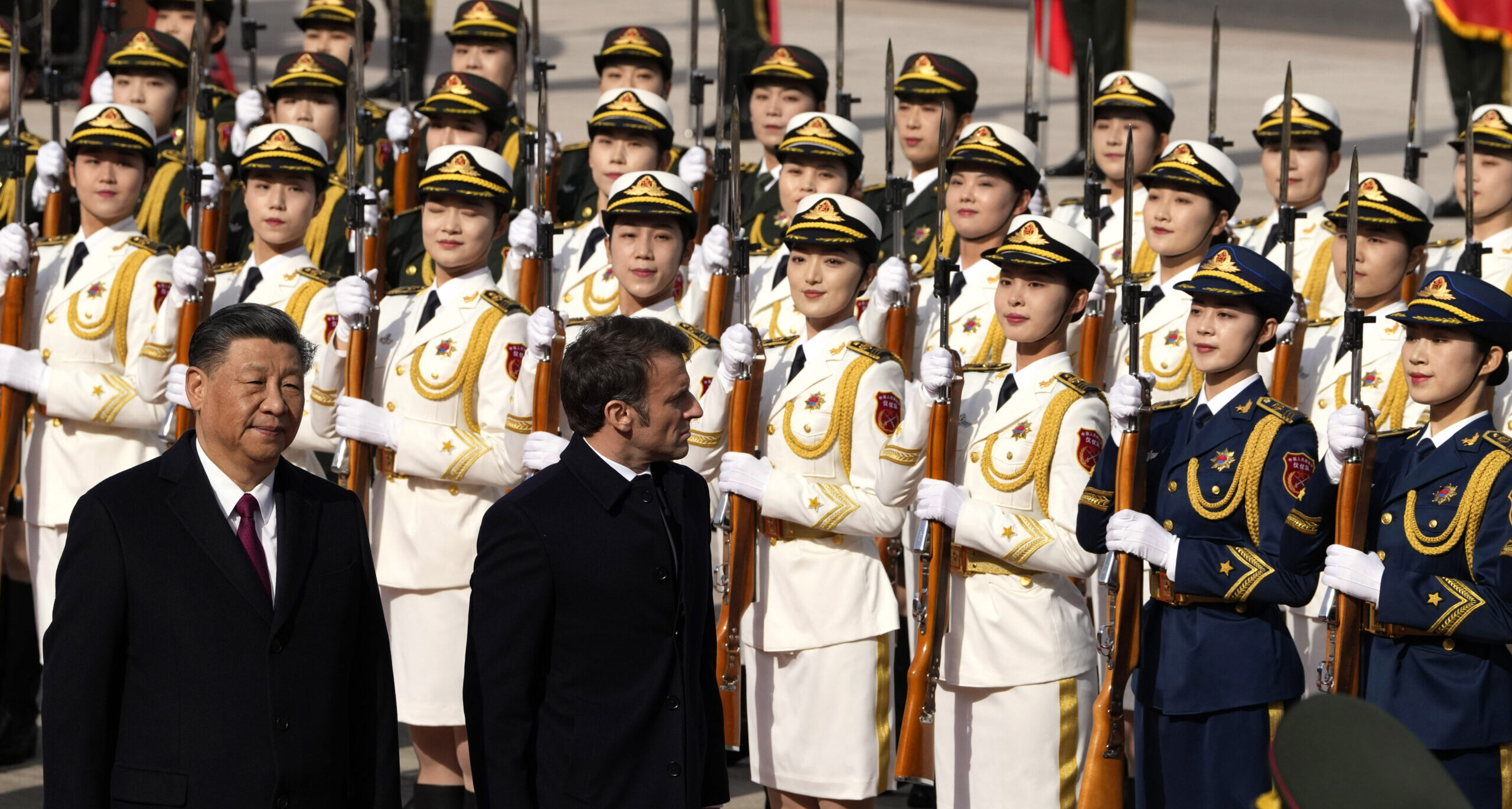First a trickle, then a stream. Olaf Scholz’s visit to China late last year, at a time of some awkwardness in Sino-Western relations, raised eyebrows; but no sooner had he left than Charles Michel of the European Commission retraced his footsteps to the Great Hall of the People, followed last week by Pedro Sánchez of Spain.
Now the Emmanuel Macron and Ursula von der Leyen tag team is set to repeat the procedure today, with the customary trade delegation in tow. They will be followed by Josep Borrell, the EU’s foreign affairs head, next week, making him at least the sixth senior European official to visit China in six months (“as you see, a lot of Europeans going to China”, he remarked this week).
There can be no mistake about it: after an enforced Covid lull, European leaders are particularly keen to talk to Xi Jinping again, face-to-face. Whether coordinated or not, the series of visits shows that something is up. But what exactly?
In part, European leaders (at least those from the Western half) are keen to reassert a distinct European approach to China, putting some distance — but not too much — between them and America, where the consensus on China is as broad as it is tough.
In particular, there is limited appetite in Brussels and elsewhere on the continent for “decoupling” with China, a notion which has become ubiquitous in Washington almost overnight. Instead, von der Leyen has been touting the idea of “de-risking” the EU-China relationship, an even vaguer notion than decoupling which seems to amount to more export restrictions on some key industries, but falling short of an economic divorce which the EU thinks it can ill afford.
Beyond this, there is less common ground. While von der Leyen passes as a China hawk, Macron, in the grand tradition of French presidents of this republic, is keen on striking bargains with Xi. Lately, Macron has been touting China as the only country capable of making peace in Ukraine; there are rumours he wants to strike a deal whereby China pressures Russia to end the war in Ukraine in exchange for continued normal, even improved, Sino-European relations. The objective of taming China into a “normal” international actor in their own image, the failed dream of many a Western leader, has not been abandoned by Macron yet.
The approach finds much less favour in parts of Central and Eastern Europe, which have always viewed the PRC with suspicion. Tiny Lithuania in particular has been the proverbial tail wagging the dog. Having already lived under Chinese reprisals for allowing Taiwan to open a quasi-diplomatic office (the usual practice is to call it something evasive like “Taipei Representative Office”), its foreign minister has been writing pointed Twitter threads about Beijing and world domination in anticipation of the latest European visit.
But the reality is that whereas Lithuania can get by without Chinese trade, much of Europe cannot. China is the EU’s biggest trading partner for goods, having overtaken America in 2020. China provides almost all of Europe’s supply of rare earth minerals. And so on. Talk of upholding the liberal international order aside, these economic facts mean that there is limited European desire for a further degradation in relations.
All of this amounts to a fine muddle for everyone involved. There is no European appetite for the sort of intimacy with China a few had dreamed in the 2000s, but no great push for a bigger breach either, at least not among those countries which have the most say. In the meantime, Europe is still trying to figure out its new modus vivendi with China, one state visit at a time.











Join the discussion
Join like minded readers that support our journalism by becoming a paid subscriber
To join the discussion in the comments, become a paid subscriber.
Join like minded readers that support our journalism, read unlimited articles and enjoy other subscriber-only benefits.
Subscribe